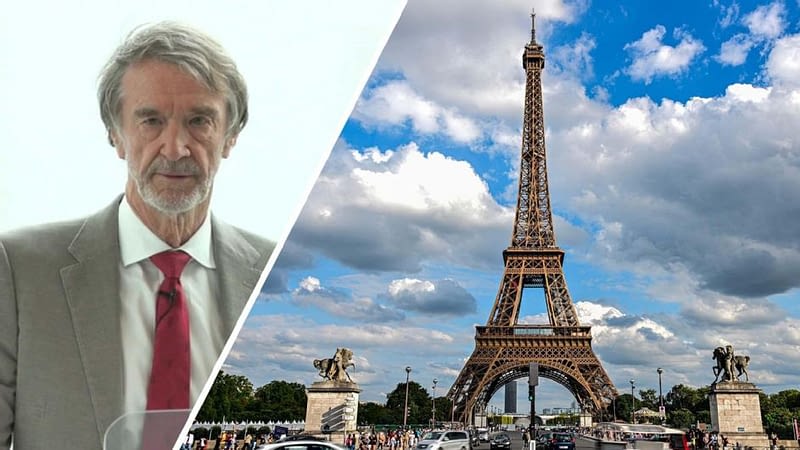Manchester United’s Bold Move: New Stadium Plans and Potential Risks
In a move that has sent ripples through the football world, Manchester United CEO Omar Berrada has openly acknowledged the potential risks involved as the club embarks on an ambitious project to build a new stadium. The announcement, made on Tuesday, marks a significant shift for the club, which has called Old Trafford home for an impressive 115 years. The new stadium, boasting a capacity of 100,000, is set to be a game-changer, but it comes with a hefty price tag of around £2 billion ($2.59 billion).
For a club already grappling with financial challenges, having posted losses exceeding £300 million ($388.57 million) over the past three years, this investment is no small feat. The financial strain is palpable, and Berrada has candidly admitted that the club “risk” falling behind their rivals during this period of transition. The experiences of Arsenal and Tottenham Hotspur, both of whom faced challenges on the pitch while constructing new stadiums, serve as cautionary tales.
“That is a risk,” Berrada stated during a press conference. “Clearly it’s something we want to avoid. We don’t want to inhibit our ability to invest in the team, for us to continue being competitive while we are building a new stadium.”
One of the key points Berrada emphasized is that Manchester United will not be seeking taxpayer money to fund this monumental project. Instead, the club is actively on the lookout for investors to help shoulder the financial burden. The goal is to have the new stadium ready in five years, just in time for the 2030-31 season. However, the timeline is contingent on obtaining planning permission and the efficiency of the local authorities.
Interestingly, the announcement of the new stadium plans came just a day after co-owner Sir Jim Ratcliffe revealed that the club’s finances were in dire straits, with money potentially running out by the end of 2025 without significant cost-cutting measures. Berrada addressed this apparent contradiction by explaining that the club’s recent strategies have been focused on addressing short-term financial issues.
“All the plans we’ve been putting in place over the last months really address the short-term issue, which is that the club was losing money,” Berrada explained. “Everything that we’re doing and a lot of these decisions are difficult and we hate to see people losing their jobs. Once we stop losing money, we then put ourselves in the best financial position to continue investing in our team and also to allow us to be able to have the ambition to build a new stadium.”
Despite the financial hurdles and a challenging start to Ruben Amorim’s tenure as head coach, Berrada expressed his desire to see Amorim lead the team into the new stadium. The club is already gearing up for the upcoming summer transfer window, with recruitment efforts underway to bolster the squad.
- Manchester United will have funds available for transfers, regardless of European qualification.
- Players will be recruited for their versatility, not just to fit Amorim’s 3-4-3 system.
- The focus is on players who can adapt to a possession-based, attacking style of football.
Berrada elaborated on the club’s recruitment strategy, stating, “When it comes to our recruitment strategy without commenting too much, but the idea we have is to be able to bring in versatile players that can be adaptable to multiple systems. And ultimately Ruben himself has said it, it’s not about the 3-4-3 tactical formation, it’s about an idea, a concept of how he wants to see the team playing. He wants to see the team playing more on the front foot, more of a possession, attacking-based style of football. So for that, you need players that can play in multiple positions that can adapt to that vision that Ruben has. And this is what we’re going to try to do over the next years in our recruitment.”
Originally Written by: Rob Dawson





















